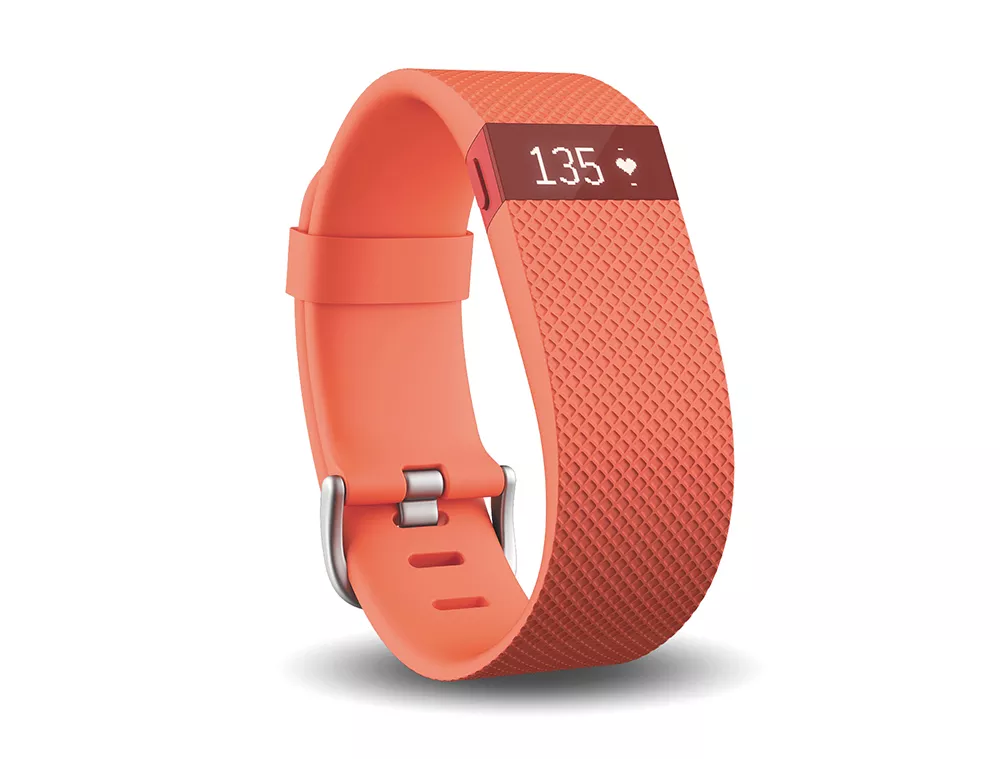My parents gave me a Fitbit for Christmas. Not with the sort of "Get your shit together, fatty!" weight such a gift could easily carry with it, but because I'd actually said I wanted one.
Granted, I am a grown man who is capable of procuring a wearable fitness monitor on my own, but I never would have bought a Fitbit for myself. I needed that first nudge — a poke in the ribs to get me moving.
So, since Christmas Day, on which I burned 2,912 calories and took 5,016 steps on a lazy day consisting mostly of whiskey, a parade of fatty foods and assembling needlessly complex toys for my two little kids, I have been loyal to this thing around my wrist. In addition to steps and calories, my Fitbit tracks my heart rate, "active minutes," and floors climbed, while also counting, to the minute, the sadly scant amount of sleep I receive.
I dropped about 16 pounds in January, and a lot of that had to do with the Fitbit. It should be noted that I also took the month off from drinking and was, for the first time in a long, long while, conscious of what I was eating. But after strapping on the Fitbit, I had an immediate and intense obsession with the statistics I was racking up while sprinkling the living-room hardwood with sweat, as I tried to keep up with a fitness video series probably designed to elicit intel from captive militants. The stats are all archived and laid out with dazzling display on the Fitbit mobile app, and I have spent hours poring over them.
Apparently, my statistical obsession is a good thing. A San Diego State University study in 2014 found that people who made regular use of Fitbit's mobile app were more likely to increase their physical activity.
Beyond the data tracking, the Fitbit has another, more basic function, in that it's a visual and tactile reminder of my fitness goals. Feeling the rubber of the strap around my wrist provides a subtle nudge that I should probably get a workout in. After three months, though, this thing feels like a second skin, not unlike how you stop fiddling with your wedding band after a couple of years of marriage. I don't think removing my Fitbit for a week would lead me to a Taco Bell-and-recliner bender any more than slipping off my wedding ring would have me surfing Tinder, but nevertheless, I have at least at times felt a physical sense of accountability. I've begun to wonder if its most valuable function could easily be achieved by tying a red ribbon around my wrist or getting "Work out, you idiot" tattooed on the back of my hand.
I reached out to Dr. Anne Cox, an associate professor of sport science at Washington State University. She hasn't studied the Fitbit specifically, but has spent a lot of her career investigating what motivates people to exercise and lead healthy lives.
"If somebody is not motivated to move, these external prompts and tools can get them started," says Cox.
The problem, she says, is that external motivators don't often lead to long-lasting change in physical activity. Remember when you dropped all that weight because your ex-girlfriend was going to be at your friend's wedding? Yeah, those pounds came back, didn't they? The Fitbit can hold you accountable, but there needs to be a deeper connection with getting yourself active for the change to last. She calls this "intrinsic motivation."
"Intrinsic motivation comes from the experience of doing it. The very definition is that you're getting some sort of joy, or it can be satisfaction, or maybe a feeling of competence from the exercise," she says. "Activities that help you feel confident make you more likely to do the little things in the future."
I have no plans to ditch my Fitbit. If anything, it's nice to have the time on my wrist for the first time in a decade, and the device's Bluetooth capability lets it display my caller ID when my phone rings in my pocket, so I've got that going for me. But it has made me change some habits, even if one of those is that I now park a good 75 yards from the grocery store, because this technology has convinced me that doing so is a step toward a healthy life.
I can live with that. ♦
















